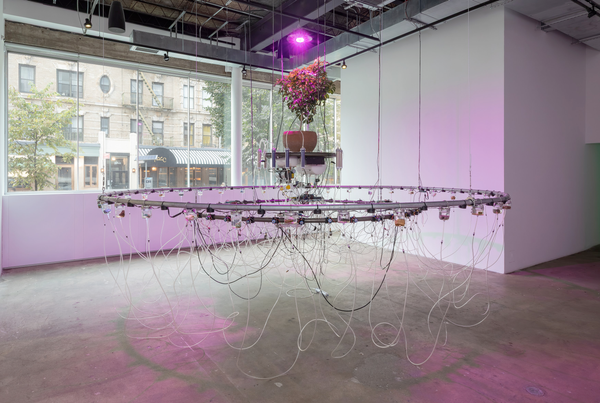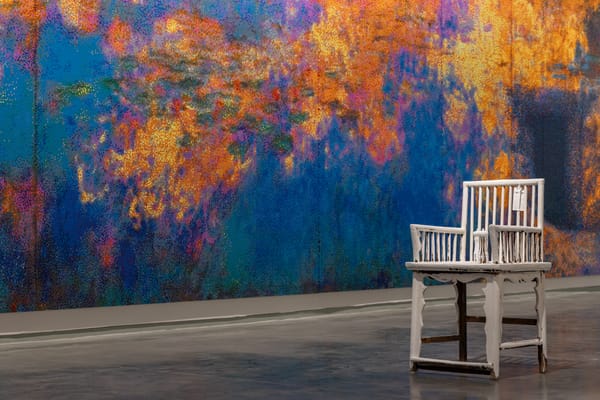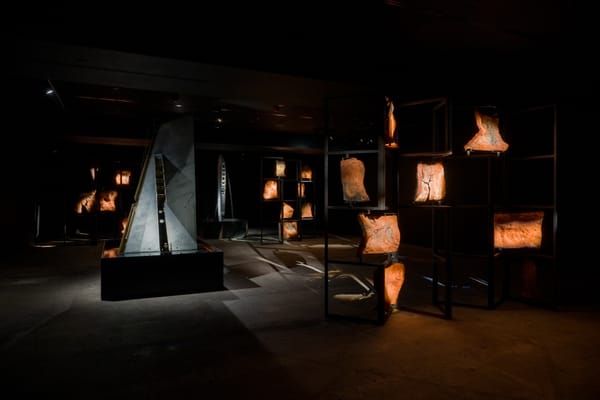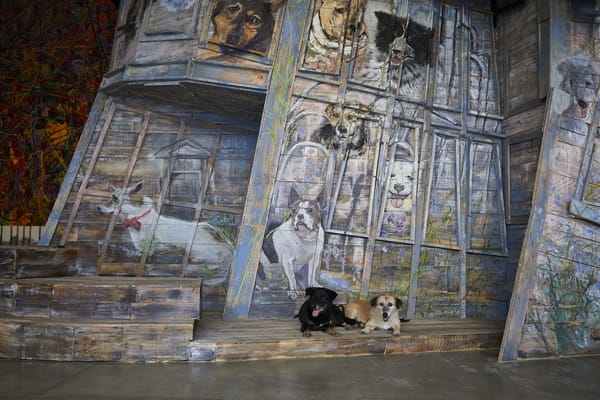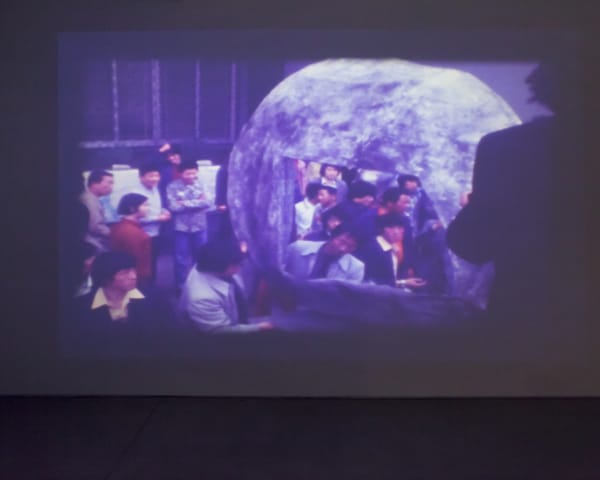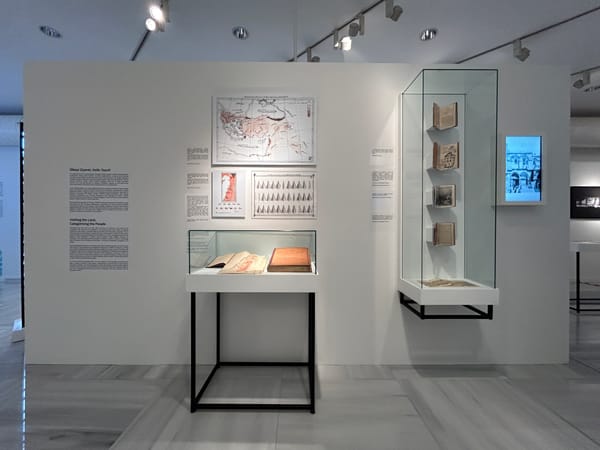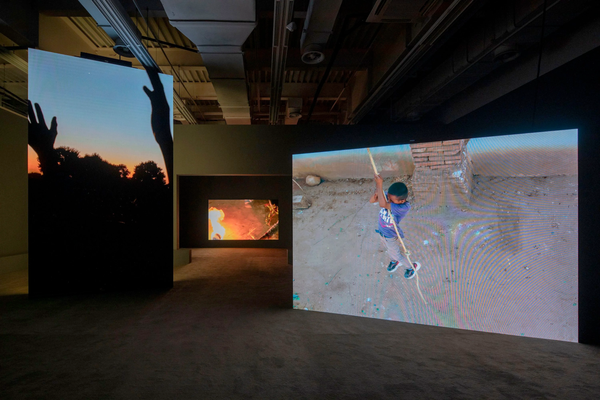Shows
Synthetic Selves: Laresa Kosloff’s “New Futures™”


In William Shakespeare’s Richard II, the dethroned king embarks on a monologue while imprisoned by Henry IV at Pomfret Castle. Meditating on the nature of the self, he addresses a persistent conundrum in the Western tradition of thought on the topic: Is identity fixed, or relational? Do we possess a core self, or are we simply the roles we inhabit? He arrives at the following conviction: “[..] whate’er I be,/Nor I, nor any man that but man is/With nothing shall be pleased, till he be eased/With being nothing.” The substance of man, according to Richard II, is his or her very lack of substance.
Laresa Kosloff chooses to close her latest short film, New Futures™ (2021), with this anti-essentialist declaration. The work deals with identity formation under late-stage capitalism, and the speech distils what a slippery task this can be. Presented at Sutton Gallery, Melbourne, New Futures™ is the third in a series of videos, economically timed at under ten minutes each. The first, La Perruque (2018), recounts the story of a despondent white-collar employee attempting to write a novel on company time; Radical Acts (2020) follows an unspecified group of scientists who create a pathogen that increases the receptivity of corporate workers to the realities of the climate crisis. From these summaries alone, Kosloff’s uneasy vision of corporate capitalism becomes apparent.

Her newest work speculates on a not improbable tomorrow wherein biohacking corporations sell “appealing” personalities to an elite clientele. New Futures™ is one such corporation, peddling a competitive edge to a wealth class looking to distinguish itself in an overflowing labor market. The film is narrated in the crisp, modulated tones of a professional voice actor, befitting the aesthetic sterility of the commercial stock footage on screen. We learn that those who decide to undergo this new therapy come to be known as “synthetics”—bringing to mind the cyborg “hosts” of the TV series Westworld (2016– )—whose character traits are precisely selected and programmed to achieve certain narrative goals.
It’s not hard to see how Kosloff has extrapolated her world from current realities. Today, biohacking—a kind of citizen science concerned with enhancing the body’s performance and functionality—is rampant among Silicon Valley software developers and amateurs alike. It encompasses a range of body modifications, including magnetic implantation, transcranial stimulation, and DIY gene therapy (such as CRISPR editing), under the broader philosophical umbrella of transhumanism. Both today and in Kosloff’s dystopia, these attempts at self-improvement are intrinsically tied to capitalism. Essentially, they are forms of upskilling which have made their way onto and into the body, and, in Kosloff’s imaginary, the “sacred” realm of individual personality. By comparison, inserting implants into one’s fingers to perceive electromagnetic fields seems passé.
As the film unfolds, the omniscient narrator reveals that the company’s plans have been thwarted. Hackers (of the traditional kind) are disgruntled by the synthetic industry and its ideology of competitive individualism. They decide to infiltrate the market with trained actors who can effectively portray the most desirable qualities. The hackers are shown sporting hoodies and dark under-eye circles, while the actors don turtlenecks and gesticulate wildly—Kosloff’s use of stock imagery amusingly fulfills every stereotype. The proliferation of fakes inevitably causes great instability in the stock market—cue angry suits and flitting stock charts—with some investor portfolios revealing themselves to be entirely worthless. It is conceivable that the Great Recession of 2107–2109 would begin with the bursting of the synthetics bubble.
Then, to make matters worse, the actors become resentful of the appropriation of their art form. They start to impersonate the hackers, joining forums and disseminating lofty meditations on acting and its associated theories. From here on, the film devolves into a farcical commedia dell’arte of role-switching and mistaken identity. This is where Kosloff extends upon Richard II’s rejection of an intrinsic self. In a world where personality is programmable, exchangeable, and transferable, how could we possess anything more substantial? Under the hegemony of late-stage capitalism, the self is merely an assemblage of carefully chosen characteristics aimed at optimizing our essential function as a commodity.
Laresa Kosloff’s “New Futures™” was on view at Sutton Gallery, Melbourne, from June 11 to July 3, 2021.

